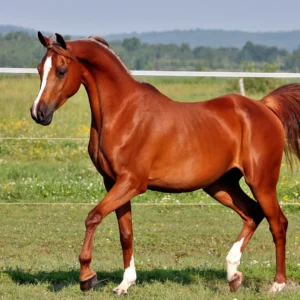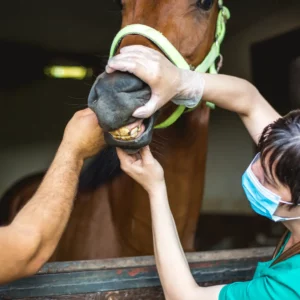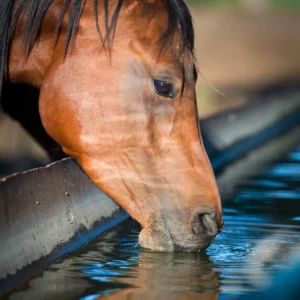Blog
Hard Keeper Horses: Strategies for Optimal Weight and Health
Hard keeper horses present unique challenges to owners and caregivers striving to maintain their health and ensure they are at an optimal weight. These horses, by their very nature, require a nuanced approach to nutrition, medical care, and overall management to thrive. Understanding how to effectively support hard keeper horses involves comprehensive strategies encompassing nutrition, medical diagnoses, deworming practices, and the types of food best suited to their needs. This blog offers guidance on navigating these challenges, aiming to improve the health and happiness of hard keeper horses.
Understanding Hard Keeper Horses
Hard keeper horses are those that struggle to maintain or gain weight, regardless of the amount of feed they consume. This situation can stem from various factors, including genetics, metabolism, dental issues, stress, and underlying medical conditions. Identifying the root cause is the first step in developing a management plan tailored to each horse’s specific needs.
Nutritional Strategies
High-Quality Forage: The foundation of any equine diet should be high-quality forage. For hard keeper horses, forages with higher calorie content, such as alfalfa, can be particularly beneficial. These provide essential nutrients and calories needed to gain weight.
Concentrated Feeds: Incorporating concentrated feeds that are high in fat and fiber can also help. Products specifically designed for hard keepers often contain a balanced mix of grains, fats, and fibers that provide concentrated calories without the risk of digestive upset.
Supplements: Certain supplements can aid in weight gain or address specific nutritional deficiencies. Omega-3 fatty acids, for example, can improve coat quality and overall health, while probiotics can aid in digestion.
Nutrition Ratios: Be sure to know exactly how much your horse needs to eat at the weight you want to maintain. Use our Horse Nutrition Calculators.
Medical Diagnoses and Care
It’s crucial for hard keeper horses to undergo thorough veterinary evaluations to rule out underlying health issues. Conditions such as dental problems, ulcers, parasites, or more serious concerns like Cushing’s disease, can all contribute to difficulties in maintaining weight.
Dental Care: Regular dental check-ups ensure that a horse can effectively chew and digest forage, which is essential for weight gain.
Parasite Control: A comprehensive deworming program tailored to the horse’s environment and exposure level is critical. Parasitic infestations can significantly impact a horse’s ability to absorb nutrients.
Veterinary Diagnoses: Work closely with a veterinarian to identify and treat any underlying health issues. Early intervention is key to preventing weight loss from escalating into a more serious condition.
Deworming Practices
Effective parasite management is a cornerstone of caring for hard keeper horses. Regular fecal egg counts and a targeted deworming strategy can help maintain the horse’s internal health, allowing for better nutrient absorption and weight management.
Choosing the Right Types of Food
Energy-Dense Feeds: Look for feeds that are high in calories yet easy on the digestive system. Beet pulp, rice bran, and vegetable oils are excellent sources of digestible energy that can help in weight gain.
Feeding Frequency: Increasing the number of feedings per day, rather than the quantity per feeding, can help hard keepers better utilize the nutrients and calories they consume. Small, frequent meals are easier to digest and can reduce the risk of colic.
Monitoring and Adjustment: Regularly assess the horse’s weight and body condition, adjusting their diet as needed. This may involve increasing caloric intake during colder months when energy requirements rise.
Conclusion: A Comprehensive Approach to Care
Managing hard keeper horses requires a thoughtful, comprehensive approach that addresses their unique nutritional needs, health concerns, and care requirements. By focusing on high-quality nutrition, addressing any medical issues, implementing effective deworming practices, and choosing the right types of food, owners can help their hard keeper horses reach and maintain a healthy weight. Collaboration with equine nutritionists and veterinarians is essential in creating a care plan that supports the well-being of these horses, ensuring they lead happy, healthy lives.



